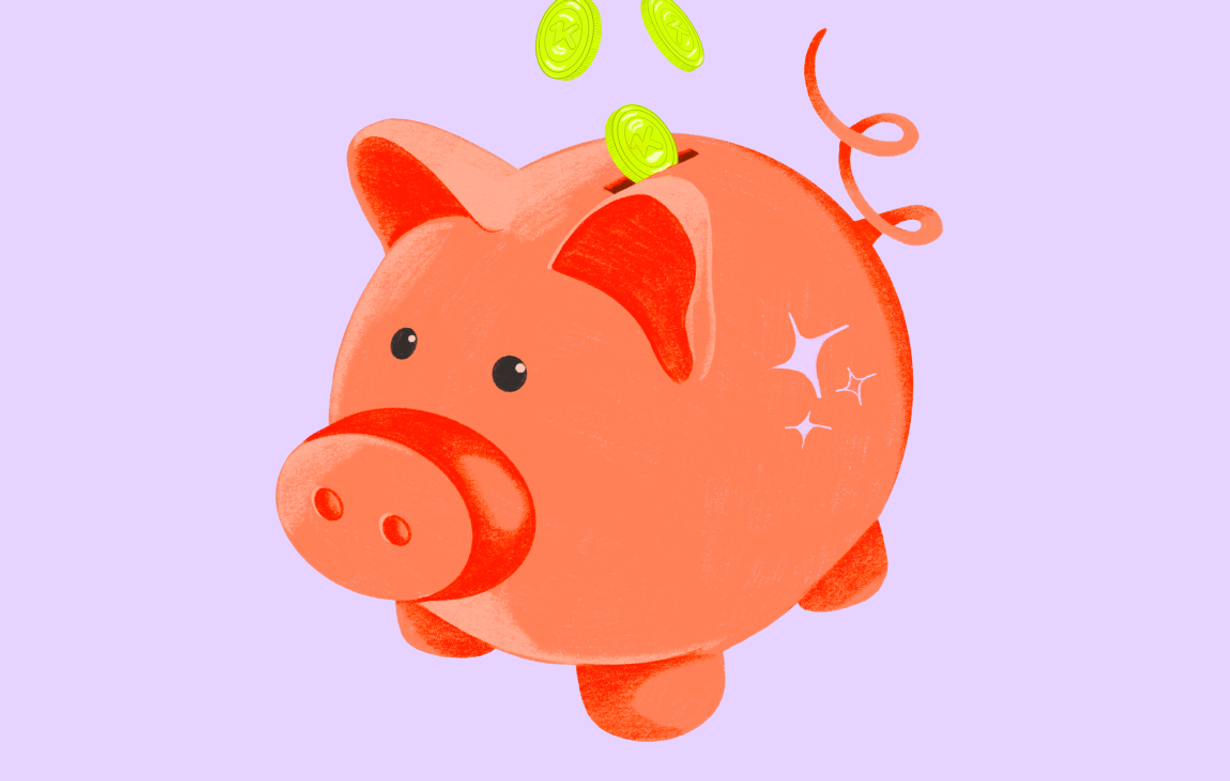Earn up to 3.5% interest on every dollar of your savings
When you’re deciding where to park your money, two common options are bonds and savings accounts. Both can help you grow your money, but they work differently and suit different goals.
This guide breaks down the basics so you can choose what fits your situation.
KOHO High Interest Savings
Before we get into the details, it’s worth calling out where a high-interest savings account can shine.
With KOHO High Interest Savings, you can:
Earn a competitive rate on your savings
Keep your money accessible for everyday needs
Avoid high monthly account fees
Track everything in the KOHO app alongside your spending
What is a savings account?
A savings account is a place to store money securely while earning interest.
Key traits:
Low risk: Your money is held at a financial institution, generally with strong protections and regulation.
Easy access: You can usually move money in and out quickly if you need it.
Variable interest rates: The rate can change over time based on the market and your provider.
Best for: Emergency funds, short-term goals (like travel or a big purchase), or cash you want to keep liquid.
What are bonds?
A bond is essentially an IOU. You’re lending money to a government or company, and in return they promise to:
Pay you interest (often called a coupon)
Return your initial amount (the principal) at a set maturity date
Key traits:
More potential return than basic savings (but not guaranteed and depends on the bond)
More risk than a savings account:
Bond prices can go up or down if you sell before maturity
There’s some risk the issuer could default (especially with corporate bonds)
Less liquid: Your money is typically tied up until maturity unless you sell the bond early.
Best for: Medium- to longer-term goals if you’re comfortable with some risk and complexity.
Which one is right for you?
You don’t necessarily have to choose only one, but here’s a simple way to think about it:
Choose a savings account if:
You want your money to be safe and easy to access
You’re building an emergency fund or saving for something in the next few years
You prefer straightforward interest over watching markets and prices
Consider bonds if:
You’re comfortable locking your money up for a longer period
You understand that prices can go up or down before maturity
You’re looking for potentially higher returns than a regular savings account and are okay with some added risk
The bottom line
Savings accounts are simple, low-risk, and flexible—ideal for emergency funds and short-term goals.
Bonds can offer higher potential returns over the long run but come with more risk and less flexibility.
The best choice depends on your timeline, your comfort with risk, and how quickly you might need your money.

About the author
Quan works as a Junior SEO Specialist, helping websites grow through organic search. He loves the world of finance and investing. When he’s not working, he stays active at the gym, trains Muay Thai, plays soccer, and goes swimming.
Read more about this author